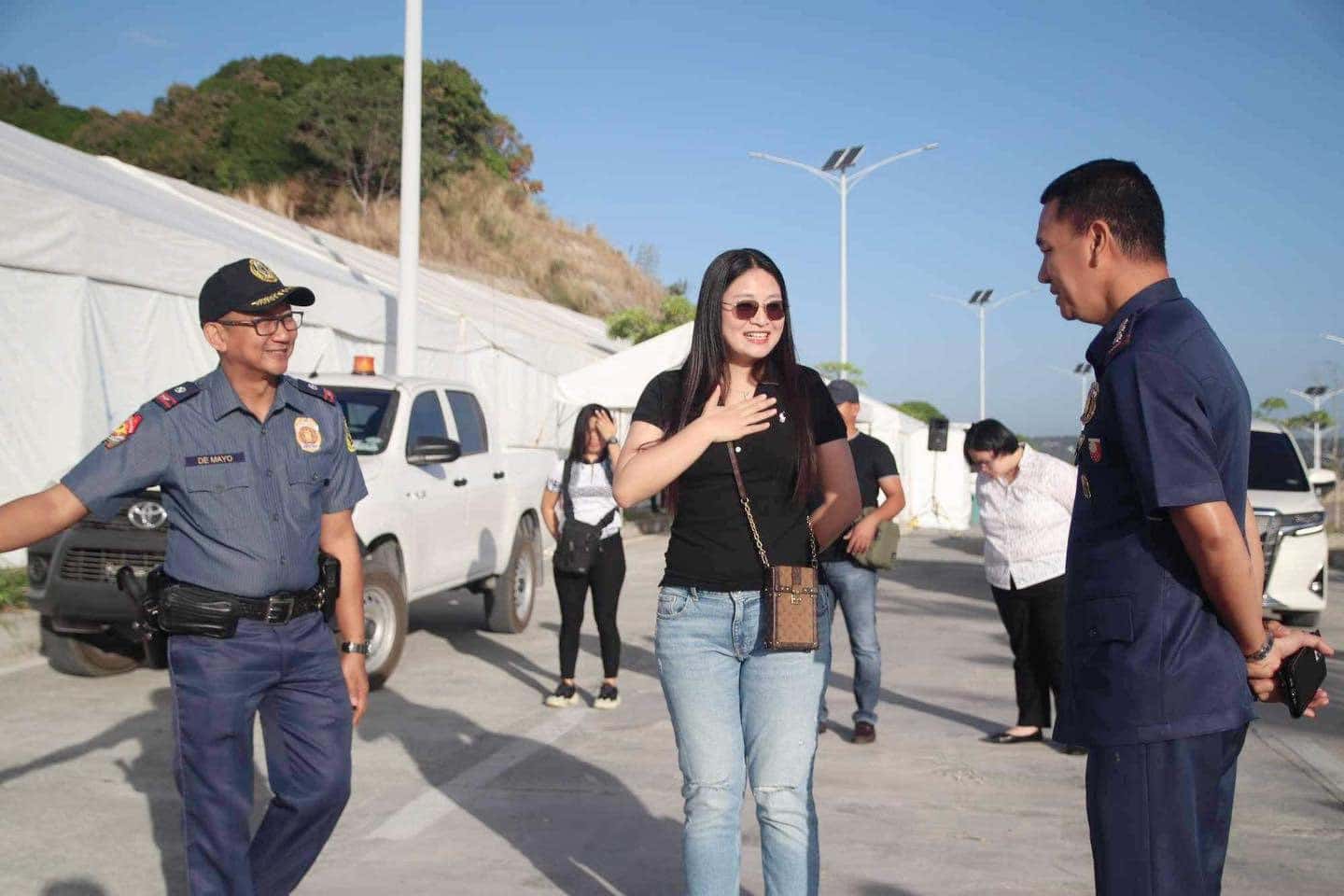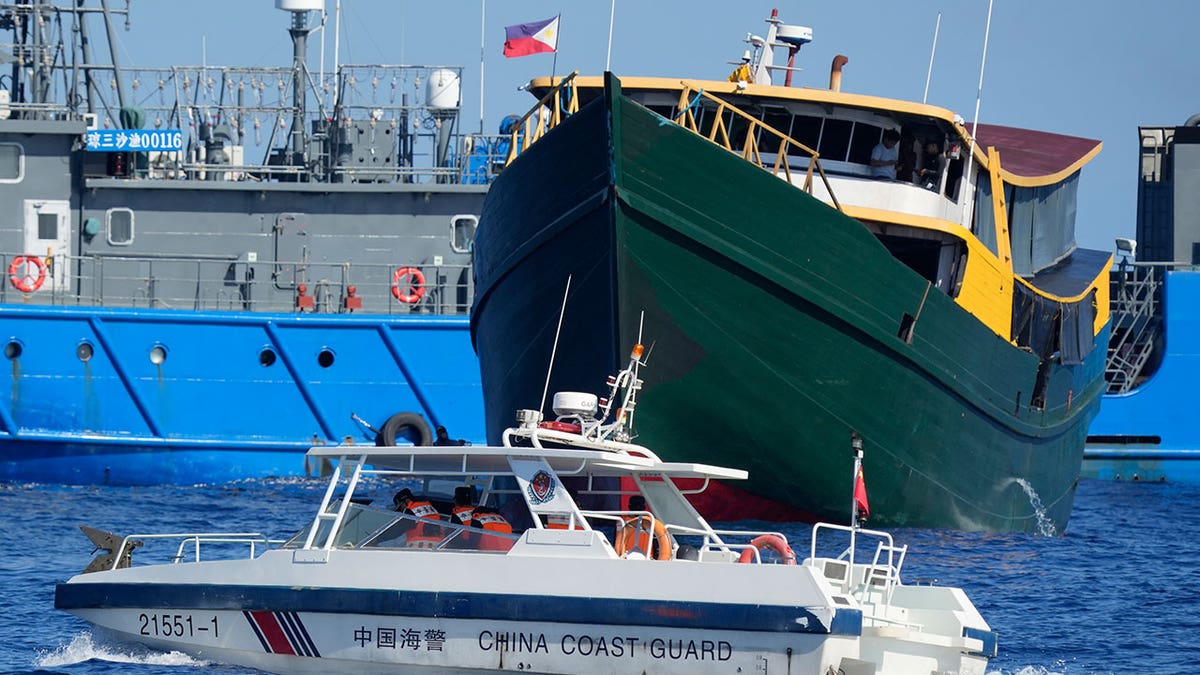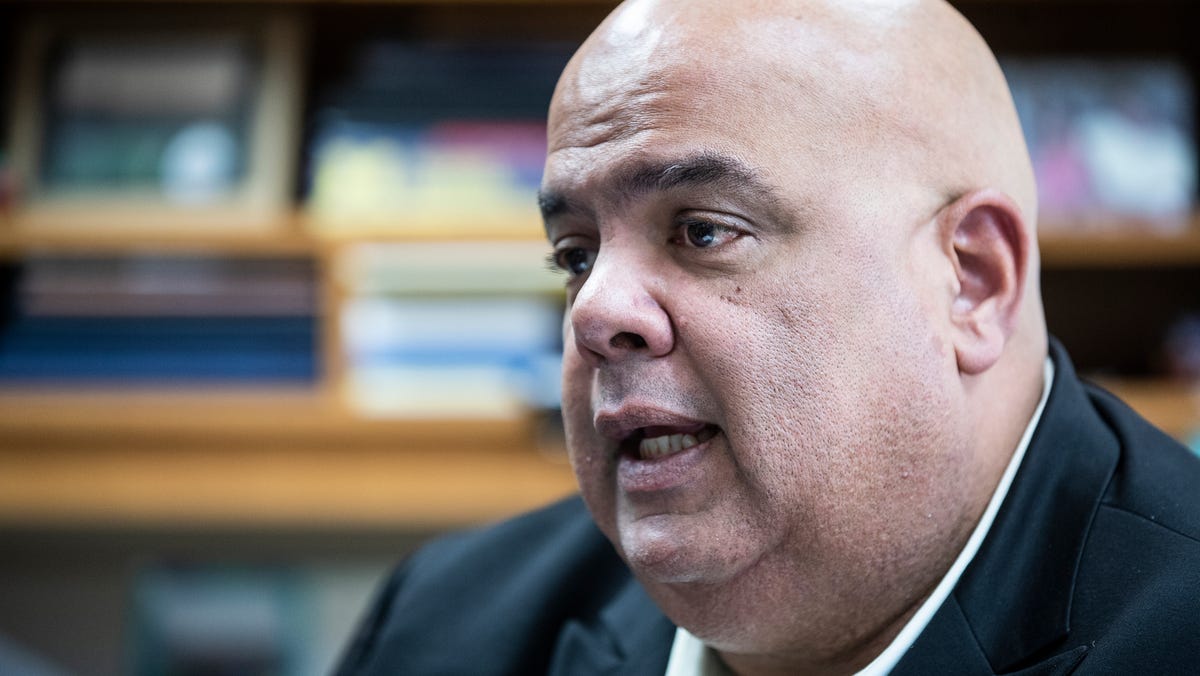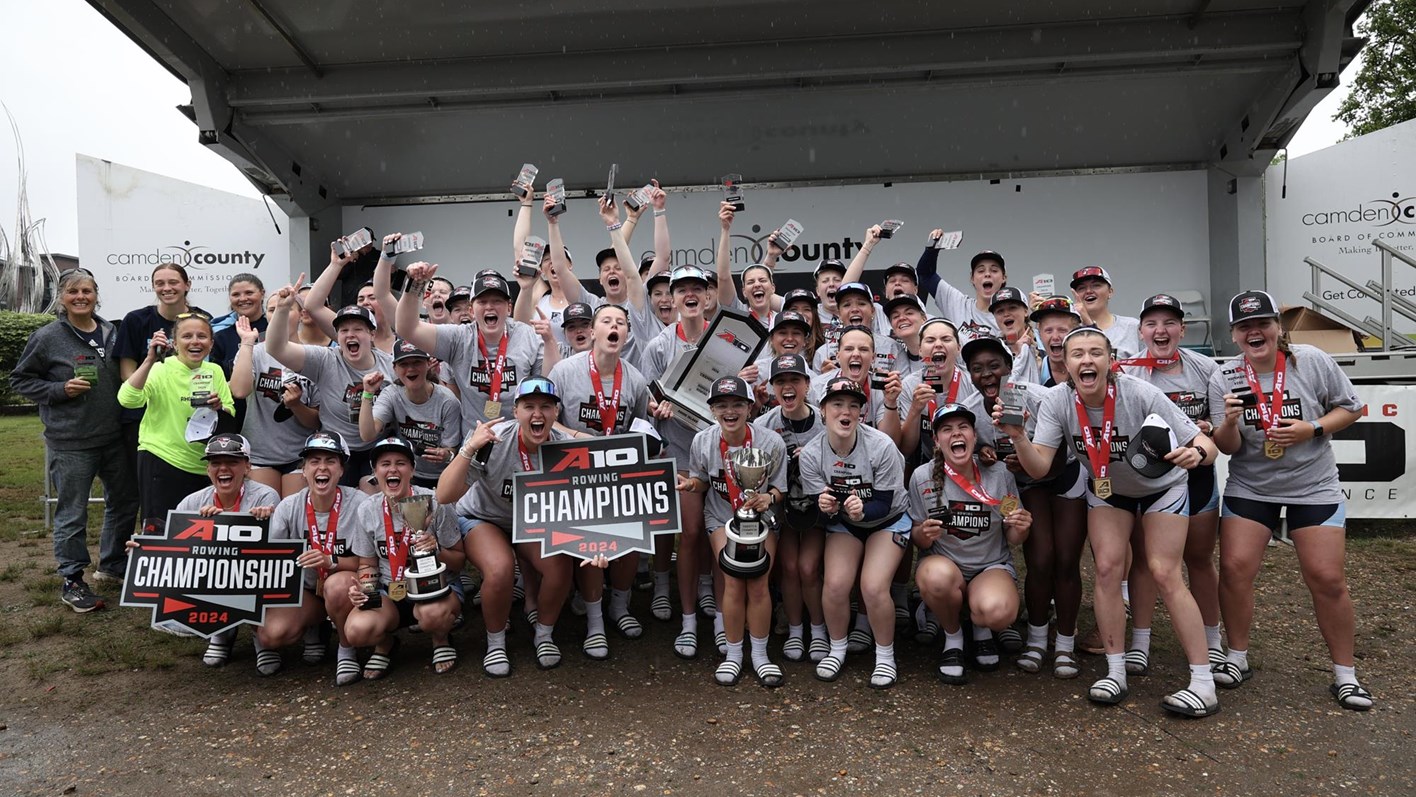World
Top seed Swiatek toppled by Svitolina in Wimbledon quarter-finals
/cloudfront-us-east-2.images.arcpublishing.com/reuters/NUZSWYERHFL7LDT5E7Q3ANFTOI.jpg)
[1/5]Tennis – Wimbledon – All England Lawn Tennis and Croquet Club, London, Britain – July 11, 2023 Ukraine’s Elina Svitolina celebrates winning her quarter final match against Poland’s Iga Swiatek REUTERS/Andrew Couldridge
LONDON, July 11 (Reuters) – Even the world’s best players are not immune to crippling nerves as Iga Swiatek discovered when her Wimbledon dreams were turned to dust in a 7-5 6-7(5) 6-2 quarter-final defeat by Ukrainian wildcard Elina Svitolina on Tuesday.
Svitolina, who returned to the tour in April after giving birth to her daughter last October, might have been facing an opponent who was riding high on a 14-match winning streak but she never stopped believing even when she was on the receiving end of some brutal shots from the four-time Grand Slam champion.
After almost three hours of nerve-jangling drama, Svitolina gave her war-ravaged homeland something to cheer about when she pulled off the biggest upset of this year’s championships.
“I don’t know what is happening right now in my head. It’s just really unbelievable,” a beaming Svitolina told the crowd after setting up a last four showdown with the Czech Republic’s Marketa Vondrousova.
“At the beginning of the tournament if somebody would tell me that I will be in the semi-final and beating the world number one, I would say they are crazy!”
“I’m happy I could bring a little happiness to people in Ukraine.”
The early exchanges did not exactly go Svitolina’s way as she found herself 4-2 down in the opening set and she struggled to get her serve going in blustery conditions on Centre Court, leaving Swiatek to edge into a 5-3 lead.
But the momentum suddenly swung Svitolina’s way as from 0-30 down on her serve in the ninth game, she went on to win 16 of the next 18 points to bag the first set and leave a shell-shocked Swiatek wondering what had gone wrong.
That sequence included breaking Swiatek’s serve twice in succession, with the Polish top seed surrendering the first of those to love with a double fault.
After Swiatek guided a backhand volley into the tramlines to hand Svitolina the set, the players had to endure a 20-minute break as the roof was closed to shut out the dark clouds hovering over Centre Court.
That interlude gave Swiatek a chance to re-evaluate her tactics and she came back to break Svitolina for a 2-1 lead in the second set.
FEROCIOUS GROUNDSTROKES
Swiatek’s 28-year-old rival, however, kept breathing down her neck and made it all square at 3-3 by pounding some ferocious groundstrokes from the baseline.
Swiatek earned two more break points in the ninth game but once those went begging neither player could break the deadlock and they headed into the tiebreak.
Svitolina made a fast and furious start to jump into a 4-2 lead but Swiatek, who saved two match points to beat Belinda Bencic in the previous round, refused to panic and kept faith with her fearsome forehand to rattle her rival.
A backhand error handed Swiatek the set and many thought Svitolina’s moment to shine had come and gone as surely the world number one would now stamp her authority on the contest and race away with the decider.
But, having already beaten three Grand Slam champions in the run-up to her showdown with Swiatek, Svitolina had gained an appetite for mauling more celebrated opponents and she was not going to let the top seed stand in her way as she targeted a place in the Wimbledon semi-finals for the second time in four years.
Svitolina kept believing as she broke for a 2-1 lead and then blew a hole in the aura around Swiatek, whose 14-match winning streak included her run to a third French Open title, after grabbing a double break two games later.
There was no coming back for Swiatek from that gaping abyss and a forehand into the net – her 41st unforced error – handed Svitolina a remarkable win.
While Svitolina went off to celebrate her triumph with a pint of beer, Swiatek harboured no ill feelings and backed her conqueror to go all the way: “You have to have guts if you want to win these matches… Elina played really well. So congrats to her.
“I told her on the net that I hope she wins this tournament. It’s tough to win a Grand Slam. I know that for sure she wants it really bad. So I will be rooting for her.”
Reporting by Pritha Sarkar, editing by Ken Ferris and Toby Davis
Our Standards: The Thomson Reuters Trust Principles.

World
Ukraine investigates civilian injuries, battles rage in Kharkiv region

World
Philippine mayor accused of acting as Chinese asset amid investigation, tensions

A Philippine mayor faces accusations of acting as a Chinese asset amid a growing territorial dispute between the two countries.
“No one knows her. We wonder where she came from. That’s why we are investigating this, together with the Bureau of Immigration, because of the questions about her citizenship,” Philippine President Ferdinand Marcos told reporters this week.
Alice Guo, the 35-year-old mayor of Bamban, has found herself in the middle of a potential scandal over her origins and allegiances. She claimed to have grown up on a pig farm and had raised no concerns prior to a strange discovery made in her town this month, the BBC reported.
Law enforcement discovered that an online casino by the name of Philippine Offshore Gambling Operator (Pogo) in Bamban actually served as a front for a “scam center,” which had close to 700 workers — including over 200 Chinese nationals — who were posing as “online lovers.”
CHINA’S MILITARY MONITORS ROUTE TAKEN BY FILIPINO ACTIVISTS SAILING TOWARD DISPUTED SHOAL
Bamban Mayor Alice Guo speaking with local law enforcement in a photo posted on her official Facebook page earlier this week. (Facebook)
The raid on the site in March rescued all of those workers, who claimed they were forced to work for the owners. The center tried to con victims with a “pig butchering” scam, in which a scammer adopted a fake identity to gain trust and then offered a romantic relationship to manipulate and steal from the victim.
Guo found herself entangled in the incident when it came to light that she owned half the land where Pogo was located.
LAWMAKERS BRAWL AS TAIWAN’S PARLIAMENT DESCENDS INTO CHAOS
The nation’s Senate brought her into a hearing to testify, and she claimed she had sold the land before she ran for mayor two years earlier, along with assets that included a helicopter and a Ford Expedition, both registered under her name but allegedly sold off before her campaign, the South China Morning Press reported.
Other irregularities raised concerns about her status. She only registered with the Commission on Elections to vote in Bamban one year before she ran and won as mayor.

Alice Guo (far right) attends an event for Philippine President Ferdinand Marcos. (Facebook)
She also admitted she only registered her birth certificate with local authorities at the age of 17 and gave few details about her background other than she was born in a house and home-schooled in a family compound where they raised pigs.
Senators accused Guo of providing “opaque” answers to their questions about her background, leading one senator to ask if Guo was a Chinese asset. She fired back that she was “not a coddler, not a protector of Pogos.”
AFTER DOZENS DIE IN FLOODS, INDONESIA SEEDS CLOUDS TO BLOCK RAINFALL
China and the Philippines have found themselves in renewed territorial disputes as Beijing tries to enforce control over waters around the Philippines, leading to clashes between Chinese Coast Guards and Filipino fishermen.

A Chinese coast guard boat moves near the Philippine resupply vessel Unaizah May 4 (in green) after it was hit by a water cannon blast, causing injuries to multiple crew members as they tried to enter the Second Thomas Shoal, locally known as Ayungin Shoal, in the disputed South China Sea March 5, 2024. (AP Photo/Aaron Favila)
Last year saw a series of near clashes between the two coast guards near the Second Thomas Shoal. The Philippine authorities protested China’s use of a water cannon and military-grade lasers.
China established a claim to the Scarborough Shoal in 2012, after which the Philippines formally launched a protest that went before a United Nations-backed tribunal. A 2016 ruling went against China, rejecting Beijing’s claims on “historical grounds,” but Beijing rejected the arbitration and its outcome.
The Associated Press contributed to this report.
World
Sanchez: “I will recognise the Palestinian state next Wednesday”.

Spain’s prime minister said during a rally in Catalonia that he is going to propose the parliament’s official recognition of Palestine as a state on Wednesday, 22 May.
Sanchez defended the decision “out of moral conviction”, considering it “a just cause” and the “only way” to achieve peace and security in the Israeli-Palestinian conflict.
Ireland, Malta and Slovenia are expected to follow suit, and have already agreed to take the first steps in that direction.
In a phone call on Saturday, Taoiseach Simon Harris and Norwegian Prime Minister, Jonas Gahr Store agreed to remain in close consultation in the days ahead. Norway’s parliament adopted a government proposal in November for the country to be prepared to recognise an independent Palestinian state.
Harris and Store said that the deteriorating humanitarian conditions in Gaza underscored the need for an immediate ceasefire and for unhindered access for aid.
Earlier this week, Slovenian Prime Minister Robert Golob said his country would recognise Palestine’s statehood by mid-June.
Sanchez meanwhile criticised the Popular Party for refusing to recognise the Palestinian state and responded to former President Jose Maria Aznar by stating that “Spain will recognise it”.
The prime minister also acknowledged his party’s positive result in the Catalan elections of 12 May and said that Salvador Illa would make a good President of the Generalitat.
Spain would be the 10th European country to recognise the Palestinian State
There are already nine countries in the EU that have recognised Palestine as a state and Spain would be the tenth. On the list are: Bulgaria, Cyprus, Czech Republic, Hungary, Malta, Poland, Romania, Slovakia, Sweden and Slovakia.
Sanchez confirmed on Friday that Spain’s recognition will not be made at Tuesday’s Council of Ministers, as had been suggested.
The prime minister said that his position on the Israel-Hamas conflict is much like his country’s support for Ukraine following Russia’s invasion more than two years ago.
He stressed that Spain demanded ”respect for international law from Russia, and from Israel, for the violence to end, the recognition of two states, and for humanitarian aid to reach Gaza”.
Sanchez added his voice to a chorus of other European leaders and government officials who have said that they could support a two-state solution in the Middle East, as international frustration grows with Israel’s military actions in the Palestinian territories.
French President Emmanuel Macron said last month that it’s not ”taboo” for France to recognise a Palestinian state. British Foreign Minister David Cameron said that the United Kingdom could officially recognise a Palestinian state after a cease-fire in the Israel-Hamas war.
Five months after Hamas militants attacked Israel on 7 October, killing about 1,200 people and taking 250 others hostage, the Israeli military has responded with air and ground assaults that have killed more than 35,386 Palestinians, according to the Gaza Health Ministry.
Why does Spain support recognition of Palestine as a sovereign state?
Spain has been historically close to the Arab world and, as such, the nation is actively trying to push a line more favourable to Palestinian aspirations within the European Union.
In a speech made shortly after his re-election last year, Sanchez promised that his new government’s “first commitment” on foreign policy would be to “work in Europe and Spain to recognise the Palestinian state”.
At the same time, he said he was “on the side of Israel” in the face of “the terrorist attack” of 7 October, but also called on the Jewish state to put an end to the “indiscriminate killing of Palestinians”.
The stance comes at a time when many Western countries are facing criticism in the Arab world for being seemingly too favourable towards Israel.
In 2014, under a conservative government, the Spanish Parliament adopted a resolution calling for the recognition of the Palestinian state, supported by all political parties.
The vote, though, was non-binding and not followed by any action.
In Europe, several countries have taken this step in a more effective way.
They include Sweden, Hungary, Malta and Romania – but none of the main EU member states have done so, meaning that Spain could become a pioneer.
A brief history of Spanish-Arab relations
Geographically close to the Maghreb region of North Africa, Spain turned to Arab countries during the Franco dictatorship which ran from 1939 to 1975 in order to circumvent its isolation in the West.
It was not until 1986, however, that the nation established official relations with Israel.
The relatively late date was a consequence of tensions born from Israel’s opposition to Spain’s entry into the UN at the end of the Second World War, due to its proximity to Nazi Germany.
In 1993, they played a role in the Oslo Accords, through which Israel and the Palestine Liberation Organization mutually recognised each other as part of the peace process.
Overall, though, Spain remains perceived by many as a pro-Arab country.
At the end of October, a mini-diplomatic crisis even broke out with the Israeli embassy after controversial statements by a far-left Spanish minister who spoke of a “planned genocide” in Gaza.
With much of Europe firmly pro-Israel, Isaias Barrenada, a professor at the Complutense University of Madrid, said it will be an uphill battle for Sanchez.
”It is difficult to imagine that Spain has the capacity to reorient the European position,” Barrenada told AFP, but “it can contribute to showing that there are sensitivities within the EU.”
-

 Politics1 week ago
Politics1 week agoOhio AG defends letter warning 'woke' masked anti-Israel protesters they face prison time: 'We have a society'
-

 Finance1 week ago
Finance1 week agoSpring Finance Forum 2024: CRE Financiers Eye Signs of Recovery
-

 Politics1 week ago
Politics1 week agoBiden’s decision to pull Israel weapons shipment kept quiet until after Holocaust remembrance address: report
-

 World7 days ago
World7 days agoIndia Lok Sabha election 2024 Phase 4: Who votes and what’s at stake?
-

 News1 week ago
News1 week agoThe Major Supreme Court Cases of 2024
-

 News1 week ago
News1 week agoTornadoes tear through the southeastern U.S. as storms leave 3 dead
-

 World1 week ago
World1 week agoA look at Chinese investment within Hungary
-

 Politics1 week ago
Politics1 week agoTales from the trail: The blue states Trump eyes to turn red in November

















